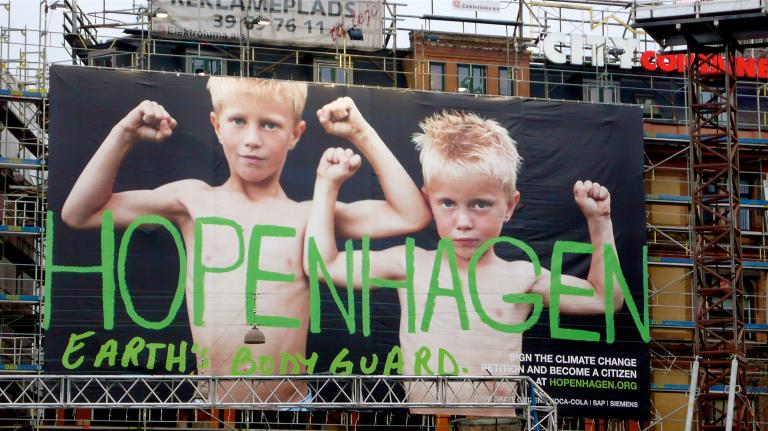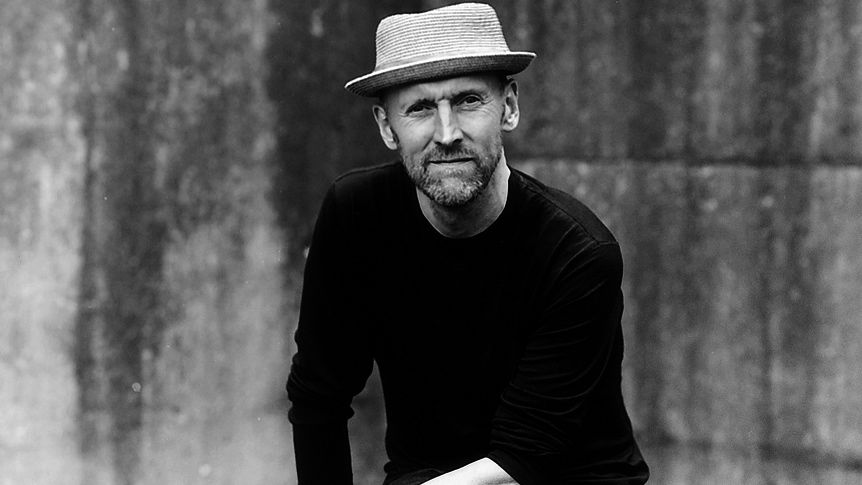Nick Hand began to fully appreciate the songs and environmental work of Pete Seeger from the seat of a touring bicycle. It was in the spring, 2012, and Hand, a graphic designer from Bristol, England, had launched a 500-mile bicycle tour through New York’s Hudson Valley.
What incites an Englishman to pedal from Manhattan to Hudson Falls? For Hand, it was the love of pedaling, curiosity, and inquisitiveness.
A typographer and graphic designer, Hand is the founder of The Department of Small Works, a small business that collects stories of traditional and contemporary craftsmen and women. He’s made it his job to look between the folds, the moss and waterfalls, rooting out conversation to learn a bit about how people live.
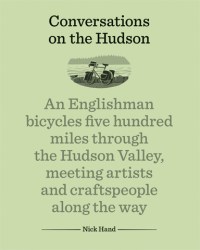 As Hand ventured along the Hudson, he photographed and penned stories about farmers, sculptors, boat makers, weavers, a bicycle recycler — a cache of do-it-yourselfers both young and old tucked within the valley. The result is Conversations on the Hudson, a gentle, hand-sized book told in the residents’ own words and laden with the author’s photos.
As Hand ventured along the Hudson, he photographed and penned stories about farmers, sculptors, boat makers, weavers, a bicycle recycler — a cache of do-it-yourselfers both young and old tucked within the valley. The result is Conversations on the Hudson, a gentle, hand-sized book told in the residents’ own words and laden with the author’s photos.
At his launch in Manhattan, Hand met Peter Buchanan-Smith, an axe maker and founder of Best Made Co. A casualty of the economy, Buchanan-Smith began refurbishing old axes in 2009. “Everything in the world seemed complicated and there was a lack of virtues that, to me, are inherent in the axe itself, like strength and fortitude,” Buchanan told Hand. Today, he sells his axes, with their trademark painted handles, for up to $300 apiece.
Ken Greene of Accord, N.Y., in Ulster County, was a local public librarian as well as a gardener who saved seeds. “Well, we have this great library system already in place,” Greene explained to Hand. “A radically democratic institution. It seemed like a good way of sharing seeds with other gardeners. So I added seeds to the library catalog. People could come in, check them out like a book, grow them in their garden … as long as they saved some seeds from their plants to return to the library.”
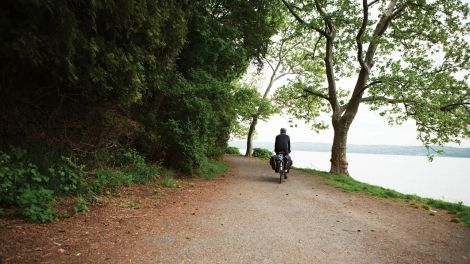
Nick Hand
It’s fitting that Hand, 57, used a bicycle saddled with packs to catalog the country’s rising “slow” movement. The bicycle, Hand says in a phone interview from Bristol, frees you from the bondage of the automobile, exposing you to both the elements and to others, and rekindling the idea of a handshake and a conversation.
Rubber and spokes also ribbon riders along back roads and trails. Hand’s exposure to the valley’s natural fringes inspired him to dedicate the book, in odd serendipity this week, to Seeger, “who stood up and sang the songs that needed to be heard, and launched the sloop Clearwater to save the Hudson River.”
“I’ve been humming Seeger’s ‘Where Have All the Flowers Gone‘ all week,” says Hand, who was able to see Seeger perform during his ride at a Clearwater fundraiser. “Listening to Woody Guthrie and Pete Seeger’s working man’s music as a teenager introduced me to folk traditions. And when I went up the Hudson Valley, his presence was felt. People had lost touch with the river, it was so polluted. They saw it every day but didn’t engage with it. Now communities have their own hand-built sloops.”
That both Hand and Seeger celebrate those who toil at a time when one of them passes and the other comes forward with a book might be a strange quirk of the universe — or the rounding of a bend for too long missing from our culture. If Seeger were here and able, he might fashion a song about a guy with a name like Nick Hand. It smacks of labor and hard work.
Or maybe he’d write about Eleanor, a historic sloop that’s being brought back to life by Nick Zachos, a boat restorer in Columbia County, New York. Eleanor sailed the Hudson before it became clean, before Seeger helped turn the waterway into a pulsing artery again.
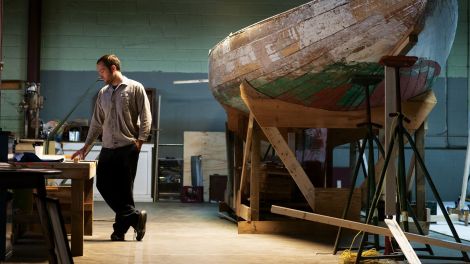
Nick Hand
The people who are hidden away in the landscape’s nooks and crannies are becoming, more and more, “people who we can learn from,” Hand says. “They are the makers of beer or music, they write or weave or draw or paint and quite often aren’t modern people. They don’t make a lot of money and they’re not good at marketing their work, yet they’re incredibly valuable.”
Cycling long-distance through less populated places isn’t new to Hand. He’s biked around the British Isles in search of craftsmen and farmers and artists of all sorts. Come early summer, he heads to Southern Germany, this time with a small printing press affixed to a custom made bike. On the trip, which he’s calling Moveable Type and funding via a Kickstarter campaign, he will print postcards of the people he meets and places he has been and send them to people he’s met in his travels around the globe.
